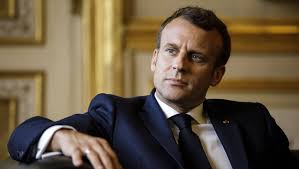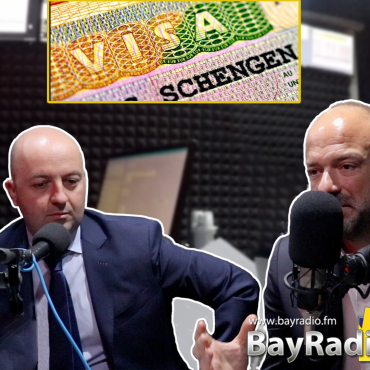-
 play_arrow
play_arrow
BayRadio Listen Live Broadcasting in Spain


Emmanuel Macron is making a last-ditch push for a tougher EU negotiating position with Britain over the post-Brexit relationship despite concerns among other member states that they risk blowing up the talks before they have begun.
The conclusion of an internal decision on Brussels’s so-called level playing field demands has been delayed as the French government continues to push for stronger commitments on regulatory alignment to be asked of the British in return for maintaining free trade.
Boris Johnson has in recent days made clear his rejection of the idea that the UK will shadow EU rules after the transition period given that he is not seeking “frictionless” trade at the borders. His chief negotiator, David Frost, is expected to build upon that in a speech in Belgium next Monday evening.
EU sources said there was a concern among some member states that negotiating avenues could be closed off even before the two sides sit down to talk in the first week of March. “You need space to find common ground,” said one diplomat.
The EU’s initial draft negotiating position, outlined by the bloc’s chief negotiator, Michel Barnier, two weeks ago, had called on the UK not to go below current standards on environmental, social and workers’ rights and stay in line with Brussels on state aid and competition rules as they develop.
France has, however, been an outspoken voice, albeit not entirely isolated among the 27 member states, in calling for more “ambitious” commitments to be a condition for the UK government in any future treaty.
There is a concern that EU attempts to increase its environmental standards, in particular, will be held back if there is a risk that British companies will be left able to undercut European firms in a decade or longer.
“The French don’t say the words ‘dynamic alignment’ in discussions now but talk about the need for more clarity and ambitious commitments,” said one EU source of the latest internal debate. “The text will probably go further that way. The problem is that this is a negotiation and we don’t want to close the door at this stage. That is the concern.”
Johnson has said the UK will not align with EU regulations as the price of a free trade deal, and that if Brussels insists the British government will settle for trade on WTO terms, including tariffs and quantity quotas on goods crossing the Channel. The French president, Macron, has in turn spoken in public of the need to ensure Britain is not given a competitive advantage in the long term.
Macron’s ambassador to the EU, during a three-hour meeting on Wednesday evening, which followed an eight-hour session among diplomats earlier in the week, insisted on Wednesday that there should be no scope for the UK to “misunderstand” the need for maintaining standards to EU levels.
The latest draft negotiating position is now to be circulated among the member states on Thursday but without the most controversial and sensitive section on state aid and environmental, social and workers’ rights.
The EU debate will continue into next week to allow ministers to then sign off on the position on 25 February, allowing negotiations with the British to start in the first week of March. “We understand that this needs to be done swiftly to maintain credibility with our negotiating partner,” said a diplomat.
Additions to the original European commission text already include that the “level playing field” commitments should prevent unfair competitive advantages “over time so as to ensure a sustainable and long-lasting relationship”.
In terms of fishing rights in British waters, the draft mandate says the two sides should also “uphold” existing reciprocal access conditions rather than merely “build” on the current terms of the common fisheries policy.
The UK will remain in the single market and customs union until the end of 2020 after which the government has accepted that there will be checks and controls at the borders with the EU.
A UK government source said: “Half the time the EU is telling us they are surprised we are not more ‘ambitious’ and the other half of the time they are saying we’re looking for too much.
“It’s now the EU who are cherry-picking, suggesting ambition only where it suits them and adding obligations that go beyond a standard free trade agreement. We are clear and consistent about what we want – not a bespoke or special FTA, but similar to the one the EU already has with Canada.”
Written by: BayRadio News
Similar posts
Recent Posts
- Robotic Surgery for Prostate Cancer: What Is Radical Prostatectomy and How Does the Da Vinci Robot Improve It
- What Is Fibromyalgia? Symptoms and Treatments of an Invisible Illness That Requires Specialized Attention
- AMASVISTA Glass: 10 reasons to choose SUNFLEX glass curtains
- Robotic Surgery, Immunotherapy and Comprehensive Care Take Centre Stage at Pancreatic Cancer Conference at Quirónsalud Torrevieja
- Robotic Surgery Against Ovarian Cancer: Greater Precision, Less Pain and Faster Recovery

Ctra. Cabo La Nao, CC La Nao, Local 6 03730 Javea, Alicante, Spain
Advertise with us
Do you have a business in Spain? Do you provide a service to the expat community in Spain? Would you like your message to reach over 500.000 people on a weekly basis?
BayRadio is a community orientated radio station offering fantastic content to our many listeners and followers across our various platforms. Contact us now and find out what Bay can do for you!
Our business is helping your business grow.
BAY RADIO S.L. © 2024. ALL RIGHTS RESERVED. WEB DESIGN BY MEDIANIC







